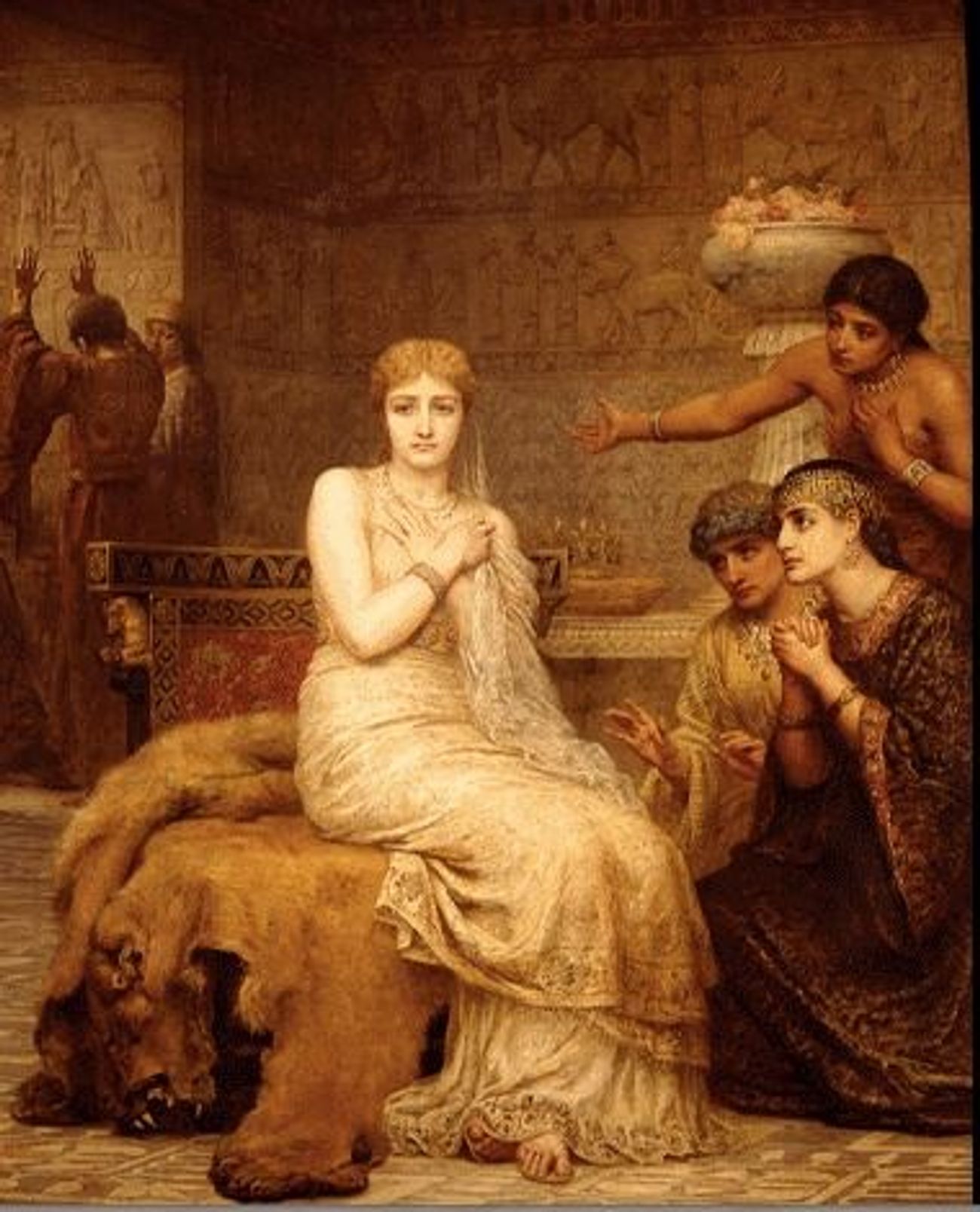Waschti
Waschti ( ˈvaʃti , Persian وشتی waschti , DMG vaštī ) is, according to the Tanach and the Old Testament, a wife of the Persian king Ahasuerus .

Name variants
From Hebrew וַשְׁתִּי( New Hebrew : Waschti , Tiberian system : Waštî) ; Good News Bible , Zurich Bible (2007), New World Translation and NRSV : Vashti ; Elberfelder Bible (1985), Hope for All (1996) and Luther Bible (1984): Wasti ; Vulgate , Grünewalder Bible and Luther Bible (1554; 1912): Vasthi ; Elberfeld Bible (1871; 1905) and Schlachter Bible (1951; 2000): Vasti . The name means "the desired one".
Hebrew Bible
In the Tanach she is the wife of the Persian king Ahasuerus. When she refuses to appear at a feast of the king, she is cast out by him ( Est 1,15 ELB ). The act is understood not only as a rebellion against the authority of the king, but also that of a woman against her husband (v. 17). Her place as queen is later taken by the Jewess Ester .
Rabbinical tradition
In the rabbinical tradition, the Persian Vashti is one of the four women who ruled the world, along with Semiramis in Mesopotamia and Jezebel and Atalja in Israel.
literature
- Kurt Hennig (Ed.): Jerusalem Bibellexikon . 3. Edition. Hänssler, Neuhausen / Stuttgart 1995, ISBN 3-7751-1271-5 .
- Heinz Schumacher (Ed.): The names of the Bible and their meaning in German . 10th edition. Paulus, Heilbronn 1989, ISBN 978-3-87618-027-4 .
Web links
- Esther Brünenberg: Waschti. In: Michaela Bauks, Klaus Koenen, Stefan Alkier (Eds.): The Scientific Biblical Lexicon on the Internet (WiBiLex), Stuttgart 2006 ff.
- Vaschti - Just an Irrelevant Figure? hamantaschen, Orthodox Judaism in Jerusalem / Jewish Zionist Orthodox /יהדות אורטודכסית - חרדית וציונית - February 24, 2010
Individual evidence
- ^ Esther Brünenberg: Waschti. In: Michaela Bauks, Klaus Koenen, Stefan Alkier (eds.): The scientific biblical dictionary on the Internet (WiBiLex), Stuttgart 2006 ff. February 6, 2011